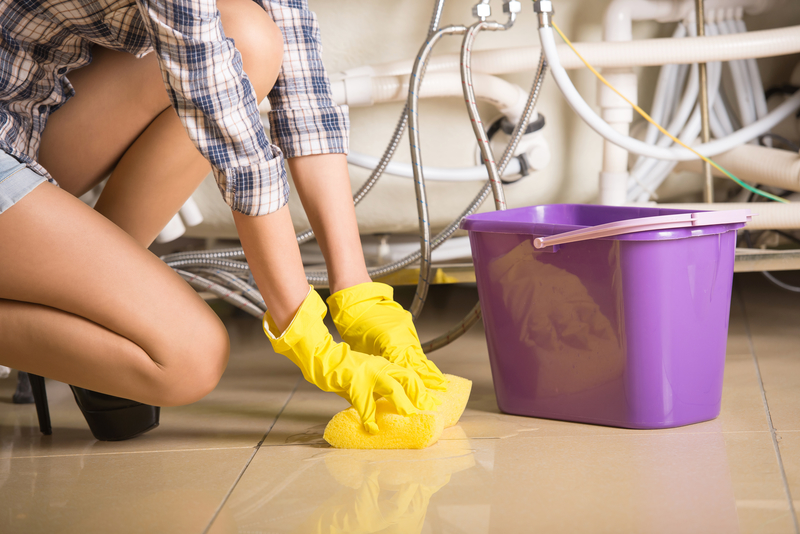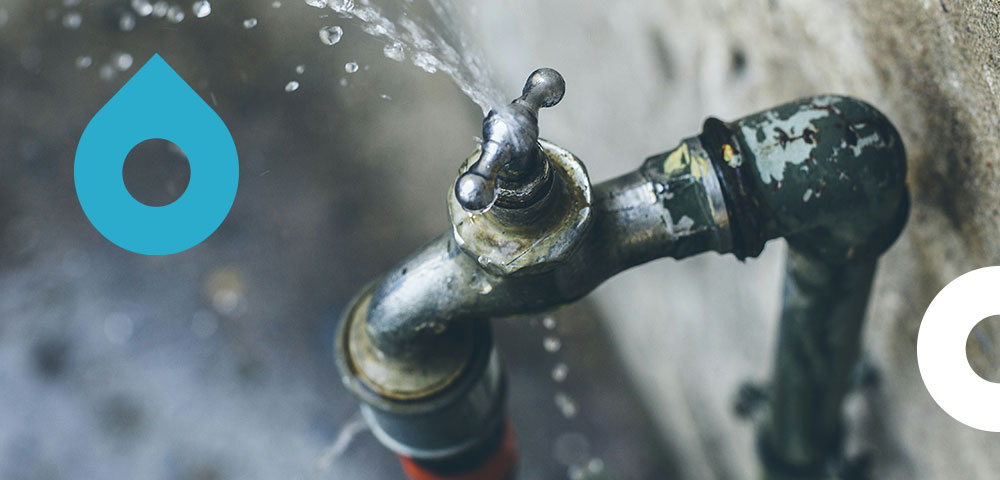What are your opinions concerning How to Find and Prevent Water Leaks in Your Home?

"Beware of little costs. A small leakage will sink a great ship." - Benjamin Franklin.
He could not have been a lot more right due to the fact that water leaks in our houses cause a waste of resources, boosting our water costs. This rise could seem negligible at first, it can lead to considerable expenditures that can damage your financial institution. Aside from an increase in bills, water leakages likewise trigger undesirable organic development, structural damages, and also even electric risks.
Identifying if you have a water leak isn't always very easy due to being not able to see most of the pipework in your house. If you have had a boost in your water bills recently, discovered water discolorations on ceilings as well as walls, smelt poor odor, etc. You could want to take into consideration asking for plumbing solutions to get it took a look at.
There are numerous reasons for water leakages, as well as we have actually put together the usual reasons below. Inspect to see if you have had relevant problems in your home lately.
Obstructed drains pipes
Food particles, dust, as well as oil can cause stopped up drains and also block the passage of water in and out of your sink. If undealt with, raised pressure within the seamless gutters can trigger an overflow and also end up breaking or breaking pipes. To avoid clogged up drains in your home, we encourage you to stay clear of pouring particles down the tubes and routine cleaning of sinks.
High water stress
You saw your residence water pressure is greater than typical but then, why should you care? It runs out your control.
It would certainly be best if you cared since your ordinary water pressure must be 60 Psi (per square inch) and although your residence's plumbing system is designed to endure 80 Psi. An increase in water pressure can place a stress on your home pipelines and result in cracks, or even worse, ruptured pipes. Get in touch with a specialist regarding regulating it if you ever before notice that your home water stress is higher than normal.
Corrosion
As your pipework ages, it obtains weaker and also much more prone to corrosion after the constant passage of water via them, which can eat away at pipes as well as trigger fractures. A noticeable indicator of deterioration in your home plumbing system is discoloration and also although this could be difficult to find as a result of most pipelines hidden away. Once they are old to guarantee an audio plumbing system, we recommend doing a frequent check-up every few years and alter pipelines
Weakened pipe joints
Pipeline joints are the parts of our plumbing system where the pipes attach. They are the weakest point of our plumbing system. Because of this, they are more vulnerable to wear and tear. It is vital to keep in mind that even though pipes are created to hold up against pressure and also last for a while, they weren't developed to last forever; consequently, they would wear away gradually. This degeneration could bring about cracks in plumbing systems. An usual sign of damaged pipe joints is too much noise from faucets.
Damaged seals
An additional root cause of water leakages in houses is damaged seals of home devices that use water, e.g., a dish washer. When such appliances are set up, seals are mounted around water adapters for easy flow of water through the device. A damaged seal can create leak of water when in usage.
With little or no knowledge of plumbing, understanding your home's plumbing system adequate to fix several of these problems (without consequence) can be a problem. Contact plumbing experts in Pittsburgh, Divine Superintendence, Rochester, as well as environ today, and they'll make those concerns vanish.
He could not have actually been much more appropriate since water leaks in our houses result in a waste of sources, enhancing our water costs. If you have had a boost in your water costs recently, saw water spots on walls and also ceilings, scented poor smell, etc. A boost in water pressure can place a stress on your residence pipes as well as lead to splits, or worse, ruptured pipes. One more reason of water leakages in homes is damaged seals of home appliances that make use of water, e.g., a dish washer. When such appliances are set up, seals are set up around water adapters for very easy flow of water through the equipment.
5 TIPS IN DETECTING A WATER LEAK IN YOUR HOUSE
Water leaks can be hard to find in your home, yet they can be so common. We rely on water every day in our home, which is why a leak can cause big problems. By detecting them early, you can save money and further damage, getting the problem fixed as soon as possible. Here are 5 tips to help you detect a water leak in your home, so you can contact a plumber straight away and get the issue sorted.
Check your water meter
Many people underestimate the value of the water meter in their home. It can be one of the best ways to tell if you have a leak early on, so you can get on top of it before issues start arising. Start by turning off all the water in your home: taps, washing machine, dishwasher, etc. Now take a look at the meter – if it’s still changing with everything turned off, it’s likely you have a fast-flowing leak that you need to get on top of straight away. If nothing changes, then leave your meter for an hour or two and come back to it. Did it change in this time? It’s likely you have a slower leak, which isn’t as urgent but still handy to get fixed so it doesn’t become a bigger problem.
Keep an eye on your bill
Another good way to detect a leak in your home is by keeping an eye on your water bill. It helps if you have a past bill from the same period of time. You can compare like for like and determine whether your water usage has increased significantly. If it has, there may be a leak in your system that you haven’t picked up before. A professional plumber can check through all of your pipes and determine where it is coming from.
Look for damage
If you have a leak inside your home, you will notice damage over time. Take a look at your showers and bathtubs and note whether any of the tiles surrounding the area seem to be discoloured or damaged in any way. There may be water stains, mould or peeling material that has resulted from a build up of moisture over time. Make sure you take a look under sinks at the back of cupboards that don’t get accessed regularly. This is where damage can go unnoticed and build up over periods of time.

I hope you enjoyed reading our section on Where to Find Water Leaks. Many thanks for spending some time How to Find and Prevent Water Leaks in Your Home. Sharing is caring. One never knows, you might be helping someone out. I treasure reading our article about How to Find and Prevent Water Leaks in Your Home.
Source